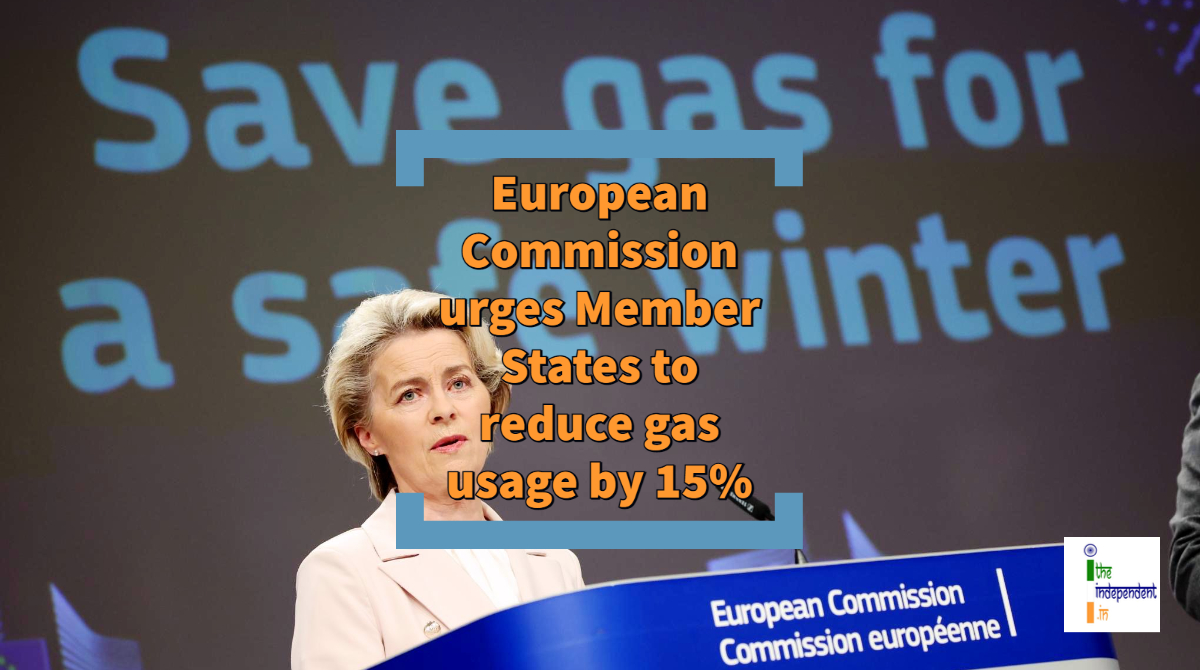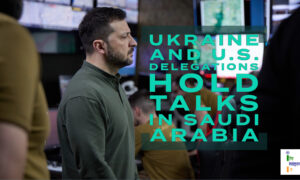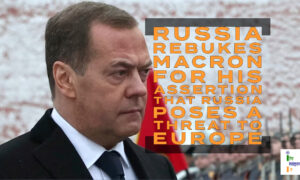
The European Commission also adopted a European Gas Demand Reduction Plan which sets out measures, principles and criteria for coordinated demand reduction
The European Commission today, i.e., Wednesday, July 20, 2022, urged the Member States to reduce their gas usage by 15% from August 1, 2022, until March 31, 2023, amid fears that Russia could completely hold back the gas supplies to the bloc.
Although it is voluntary, it may become legally binding if Russia halts the gas supply. The Nord Stream 1 pipeline from Russia to Germany has been offline for maintenance for 10 days and is due to be turned back on Thursday, July 21, 2022. Russia supplied Europe with 40% of its natural gas last year.
The European Commission will also accelerate work on supply diversification, including joint purchasing of gas to strengthen the possibility of sourcing alternative gas deliveries.
Speaking on the occasion, the President of European Commission – Ursula von der Leyen said, “Russia is blackmailing us. Russia is using energy as a weapon. Therefore, in any event, whether it’s a partial, major cut-off of Russian gas or a total cut-off of Russian gas, Europe needs to be ready.”
Taking it to twitter, she tweeted,
Russia is using gas as a weapon.
— Ursula von der Leyen (@vonderleyen) July 20, 2022
We have to address our energy security at EU level.
We learnt from the pandemic that if we act in unity, we can address any crisis.
So let's act together to reduce gas use and provide a safety net for all EU countries. https://t.co/Or53o1Acer
She further tweeted,
For the first time, we have to address our energy security at EU level.⁰
— Ursula von der Leyen (@vonderleyen) July 20, 2022
For this, we have to reduce our gas consumption and put the saved gas into storage.
This is a big ask for the whole of the EU – but it is necessary to protect us. pic.twitter.com/01lAyNJbNa
The retaliation is in response to the sanctions imposed by the European Union (E.U.) on Russia for invading Ukraine. Russia has cut supplies to a number of countries which have rejected its demand for payment for gas in Russian Roubles, including Poland, Bulgaria, the Netherlands, Denmark and Finland.
The E.U. also accused Russia of reducing supplies to make it more difficult for E.U. countries to build up reserves ahead of the winter. However, Poland once again blocked. It has filled its gas storage to 98% of capacity and does not feel it needs to curb its use. The Member States will discuss the proposed measures at an emergency meeting of energy ministers on July 26, 2022. United Kingdom (U.K.), which is no more a part of the E.U., gets less than 5% of its gas from Russia, but its gas prices are affected by fluctuations in global markets.
The European Commission also adopted a European Gas Demand Reduction Plan which sets out measures, principles and criteria for coordinated demand reduction. The plan focuses on substitution of gas with other fuels, and overall energy savings in all sectors. It aims to safeguard supply to households, essential users like hospitals and industries that are decisive for the provision of essential products and services.
The International Monetary Fund (IMF) has warned it would plunge European economies into recession, heightening an energy crisis that has sent consumer bills soaring. The European Commission suggested measures including compensating industries that use less and limiting heating and cooling temperatures in public buildings. The households are classed as “protected consumers” under E.U. rules and would be shielded from such curbs.
While the global economy is yet to recover from the economic impacts of Coronavirus (COVID-19), the disruption in energy supplies would further lead the world into a global recession.







